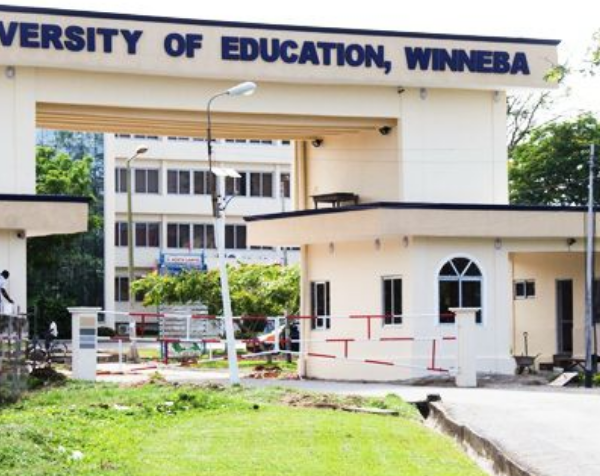Appeals Court in Cape Coast unanimously dismisses appeal of former principal officers of UEW
The Appeals Court in Cape Coast has unanimously dismissed all 13 grounds of appeal filed by six former principal officers of the University of Education, Winneba.

The Appeals Court in Cape Coast has unanimously dismissed all 13 grounds of appeal filed by six former principal officers of the University of Education, Winneba.
The applicants including former Vice-Chancellor, Prof. Mawutor Avoke and former UEW UTAG President, Dr Kaakyire Frimpong Duku, were at the Court of Appeal to challenge the procedure for their dismissal.
The grounds of appeal was on the procedure used by the University to dismiss the officers and the validity of the Governing Council to constitute an Investigative Committee on the dismissed officers of the university.
The rest of the grounds were that the acting Vice-Chancellor (VC), at the time, was an unlawful member of the Governing Council and could not have constituted an Investigative Committee on them and finally, the refusal of the Cape Coast High Court to admit into evidence an alleged EOCO report that had vindicated them on their interdiction.
The three-member panel presided over by Her Ladyships Irene C. Larbi (Mrs) JA, (Presiding); Georgina Mensah-Datsa (Mrs.), JA and Y Darko Asare, JA in dismissing the matter on the EOCO report, noted that it was at the dying embers of the case at the High Court in Cape Coast that the lawyer for the appellants, Afenyo Markin sought leave of the Court to file an alleged EOCO Report.
In furtherance of that, three different reports were filed and their authenticity were successfully challenged leading to their dismissal.
The court, however, established that the appeal had to do with the procedure used to arrive at the decision and not the substantive matter and consequently held that since the report wasn’t part of the procedure and the documents used to interdict them, same should not have been entertained by the trial judge at the High Court, in the first place.
The Court also stated that the Governing Council of the 1st Respondent University was validly constituted in accordance with Act 672 and its appointment of the then Ag. VC was validated by section 10 of the same Act.
Accordingly, the court affirmed that the Governing Council was clothed with the authority to appoint, and so long as the President attended his inauguration, it amounted to tacit approval.
The Court, in concluding on the matter, noted that if the Ag. VC was validly appointed, then his decisions could not be quashed.
Likewise, the decision of the Governing Council validly constituted by virtue of the Ag. VC’s membership cannot be brought for quashing.
The Appeals Court could not also establish the breach of certiorari, mandamus, quo-warrato, prohibito and injunction and dismissed same.
The Court also gave an indication that the Ag. VC acted in compliance with the University Statute which enjoins him to discipline and, therefore, he could not be said to have acted because of his personal interest.
To the court, the interdiction of the former officers of the university was a normal administrative device for checks and nobody could take that right away from the 1st Respondent Institution.
The Court on quo-warranto, held that since the Ag. VC was validly appointed; nobody could question the source of his administrative authority.
It explained, the matter that arose at the High Court was that of interdiction and nothing more, therefore, there was nothing to be restrained by prohibition.
On the issue of mandamus, the court held that the Governing Council had been established to have been validly constituted and the discipline administered by Rev Fr. Prof Anthony Afful-Broni was in line with section 10 of Act 672 and statute 36 of the University.
Therefore, the mandate of the VC cannot be questioned.
The three-member panel concluded that the 1st Respondent Institution did not err in its decision in respect of the five dismissed Applicants nor breach the rule of natural justice in its actions.
It accordingly dismissed all 13 grounds of Appeal in its entirety and, awarded a cost of ¢2,000 against each of the six applicants to be paid to the 1st respondent.
It would be recalled that on November 11, 2019, the Cape Coast High Court 2 presided over by Mills Tetteh ruled in favour of the University of Education, Winneba after the applicants filed a similar application at the Court.
Dissatisfied by the earlier ruling, the applicants filed an appeal at the Court of Appeal, Cape Coast, on 13 grounds.
Principal among their reliefs was the reinstatement of five of the applicants.
Source:myjoyonline.com


